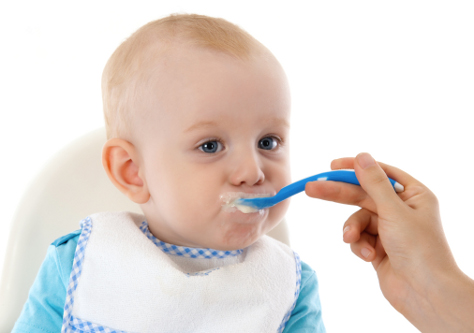Foods that can trigger eczema
Here’s the lowdown on what foods to be aware of that can trigger eczema in babies

Whilst eczema isn’t an allergic reaction, 1 in 3 children with eczema has a food allergy that can make their eczema worse.
Finding food triggers is tricky, but some foods are more likely to make eczema worse. Yet signs of baby’s eczema worsening due to something they ate may not show up for days after they’ve eaten it. Even then it may not have been the food that caused the eczema to worsen as remember 2 out of 3 children with eczema won't have a food allergy at all.
In cases where there is a relationship between food and eczema, it’s often referred to as ‘atopic eczema’ and certain food types are thought to worsen the eczema, so must be introduced with care.
An awareness of the relationship between food and eczema, often referred to as an ‘atopic condition’, will help you go through the weaning process with greater confidence and less worry.
These 8 common offenders account for 90% of all food allergies:
- Milk
- Eggs
- Peanuts
- Tree nuts (e.g. cashews and walnuts)
- Wheat
- Fish
- Shellfish
Fortunately, the plain cooked vegetables which are the best options to start weaning with are the least likely to cause an allergic reaction. Pureed fruits such as apple, pear, banana and avocado are low risk too. However, it’s a good idea to introduce new foods during the morning or at lunch so any adverse reactions are easily noticeable during the day.
Try to introduce new foods one meal at a time and leave a gap of three days in between each new food, in order to spot any reaction. Keep a diary of each mealtime so you can begin to identify any foods may affect your child.
In the second stage of weaning the following foods are just some that are recommended that can cause food allergies e.g.
- Mashed fish
- Mashed hard boiled eggs
- Full fat dairy products such as yoghurt, fromage frais or custard
- Whole cows’ milk when used in cooking or mixed with food.
Once you’re comfortable with these (or have identified potential problem foods), you can begin to give your baby a wider range of citrus fruits, berries and kiwis. You can also introduce fresh tomatoes and strawberries. However, because of their acidity they might cause a localised skin rash in some children. Of course, these fruits should be avoided if your child experiences an itchy rash, swelling or breathing difficulties.